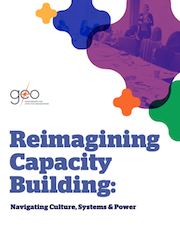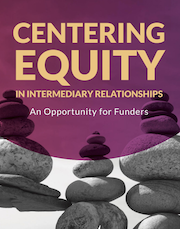Site Search
- resource provided by the Forum Network Knowledgebase.
Search Tip: Search with " " to find exact matches.


Bank of America has announced grants totaling more than $22 million in support of advancing racial equality and economic opportunities.
A total of $18.35 million was awarded in support of higher education and workforce development, with a focus on efforts to strengthen hiring pipelines and empower students to advance their academic and career opportunities, including a previously announced $10 million grant to Spelman and Morehouse colleges to establish the Center for Black Entrepreneurship. Workforce development awards include $300,000 to GRID Alternatives in support of the SolarCorps Fellowship Program, which enables individuals from diverse backgrounds to be trained and launch careers in the renewable energy field, as well as grants to the Thurgood Marshall College Fund, Posse Foundation, Hispanic Scholarship Fund, and United National Indian Tribal Youth.
In addition, $1.3 million was awarded to assist minority and indigenous entrepreneurs and their small businesses through organizations such as the Latino Business Action Network, Echoing Green, and Our Native American Business Entrepreneurship Network (ONABEN), and $2.55 million was awarded in support of health and emergency needs, such as hunger relief and shelter focused on helping communities recover from the disproportionate impact of the coronavirus including Hispanic-Latino community-based health organizations that are part of the UnidosUS community health affiliate network and the Hispanic Federation.
"Workforce development, job creation, and access to health and housing services are some of the most pressing needs facing Black, Hispanic-Latino, and Native American individuals," said Ebony Thomas, Bank of America's racial equality and economic opportunity executive. "By providing this support alongside our national and local partners, we are further addressing many of the challenges facing under-resourced and underserved communities across the U.S."
The Princeton Area Community Foundation recently awarded $199,000 in COVID-19 Relief & Recovery Fund grants to 25 nonprofits holding summer programs.
These programs will include instructions to help students overcome learning loss caused by the pandemic.
"Through these grants, we are helping 25 nonprofits engage 2,900 children in educational and social-emotional learning programs," said Jeffrey M. Vega, President & CEO of the Community Foundation.
"We know COVID-19 caused significant disruptions to education, especially for students living in under-resourced communities, and we hope these grants will help young people rebound from some of that learning loss and re-engage children in the many community-based programs that were forced to shut down last year."
To prepare for the third phase of COVID Relief funding, the Foundation reached out to nonprofits and other stakeholders to learn about needs throughout the region.
Learning loss due to the pandemic and helping prepare students to return to classrooms were among the highest priorities cited by nonprofits.
According to a report by JerseyCAN, a nonprofit focused on education, a majority of New Jersey's third- through eighth-graders were not on grade level at the start of the 2020-21 school year because of the pandemic.
Americares has announced a $2 million grant from Johnson & Johnson to launch a three-year program aimed at strengthening the resilience of more than 100 safety-net health clinics in areas where climate change disproportionately affects the health of vulnerable communities.
The Climate Health Equity for Community Clinics Program is a collaborative effort between Americares, the Center for Climate, Health and the Global Environment (C-CHANGE) at the Harvard T.H. Chan School of Public Health, Johnson & Johnson, and healthcare providers at participating free clinics and community health centers, which will design tailored interventions that meet the needs of under-resourced and overworked staff. By improving clinic operations and health resilience, the program aims to protect patients’ health during heat waves, wildfires, hurricanes, floods, and other climate-related emergencies.
According to Americares, more than 90 percent of free clinic and community health center patients qualify as low income, and more than half identify as racial and ethnic minorities. The World Health Organization has declared climate change the single biggest threat to humanity—putting clean air, safe drinking water, secure housing, and food supplies at risk—and projects climate change will cause an additional 250,000 global deaths annually from 2030 to 2050, largely due to malnutrition, malaria, diarrhea, and heat stress.
The New Jersey Council for the Humanities has awarded 18 grants totaling $216,319 in its most recent grant round. These funds will support a diverse array of projects in nine counties across the Garden State, highlighting NJCH’s ongoing commitment to fostering the public humanities.
Of the 18 awarded projects, five had their beginnings in prior NJCH grants or programs.
Two organizations, the AIDS Resource Foundation for Children and the Hispanic Family Center of Southern NJ, received funding for projects that expand upon the Dear Rosa Project, an oral history initiative amplifying the voices of women living with HIV/AIDS that was funded by a prior NJCH grant. Additionally, Clinton Hill Community Action and Raíces Cultural both received funding to extend projects initially developed in NJCH’s Community History Program. And Truehart Productions received funding to produce a new episode of the PBS documentary series “The Price of Freedom,” which previously received developmental funding from an NJCH incubation grant.
“We are thrilled to see the continued impact and evolution of projects that have received our support in the past. Their success demonstrates the profound influence of our programs on the public humanities in New Jersey,” NJCH Executive Director Carin Berkowitz said. “The diverse and dynamic projects funded in this round will significantly contribute to the understanding and appreciation of our state’s rich cultural heritage.”
